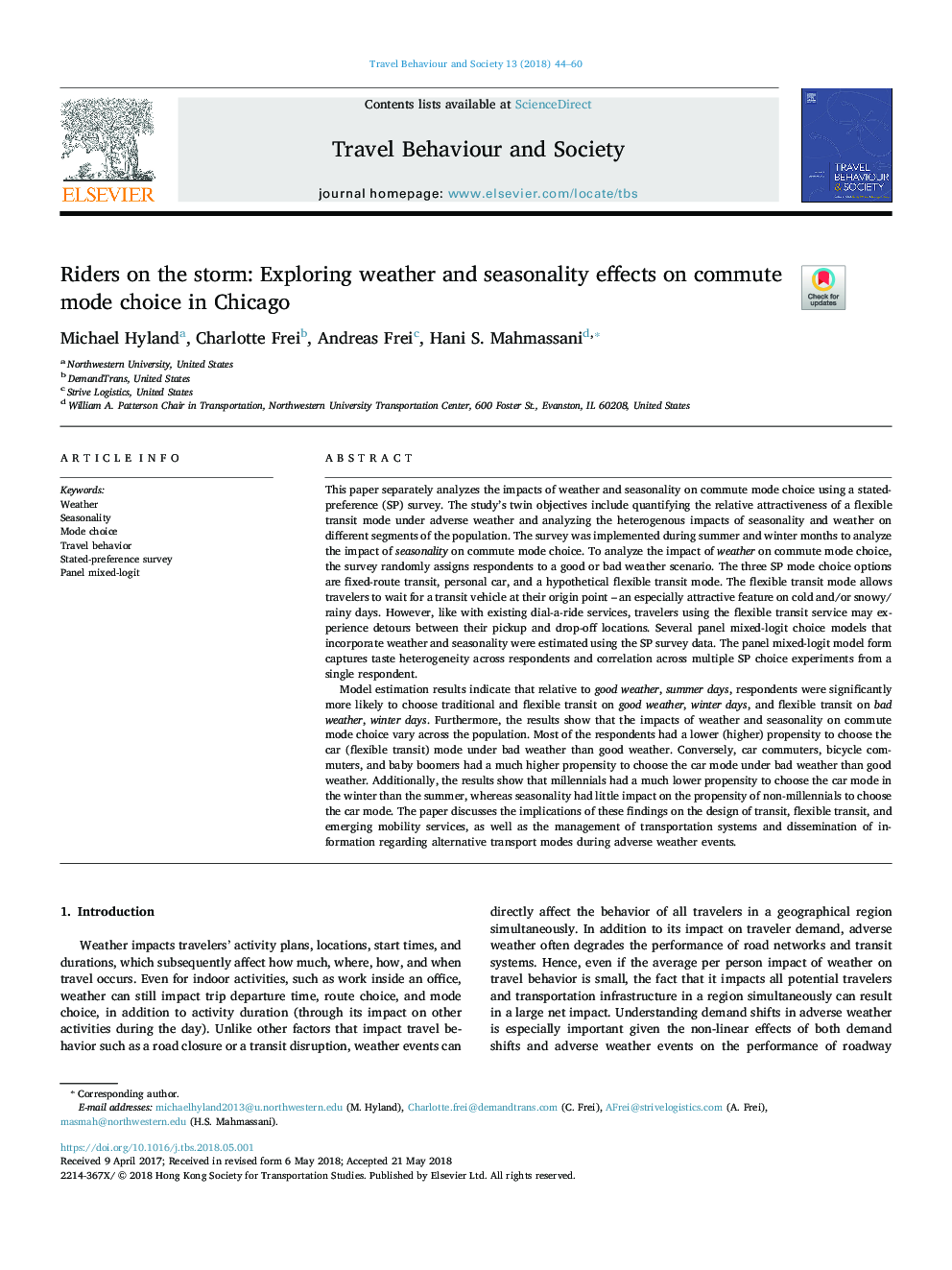| Article ID | Journal | Published Year | Pages | File Type |
|---|---|---|---|---|
| 6576244 | Travel Behaviour and Society | 2018 | 17 Pages |
Abstract
Model estimation results indicate that relative to good weather, summer days, respondents were significantly more likely to choose traditional and flexible transit on good weather, winter days, and flexible transit on bad weather, winter days. Furthermore, the results show that the impacts of weather and seasonality on commute mode choice vary across the population. Most of the respondents had a lower (higher) propensity to choose the car (flexible transit) mode under bad weather than good weather. Conversely, car commuters, bicycle commuters, and baby boomers had a much higher propensity to choose the car mode under bad weather than good weather. Additionally, the results show that millennials had a much lower propensity to choose the car mode in the winter than the summer, whereas seasonality had little impact on the propensity of non-millennials to choose the car mode. The paper discusses the implications of these findings on the design of transit, flexible transit, and emerging mobility services, as well as the management of transportation systems and dissemination of information regarding alternative transport modes during adverse weather events.
Related Topics
Life Sciences
Environmental Science
Management, Monitoring, Policy and Law
Authors
Michael Hyland, Charlotte Frei, Andreas Frei, Hani S. Mahmassani,
